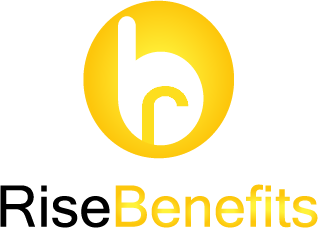Group Benefits

A group health plan is a term which encompassed different kinds of employer based benefit plans. At Rise we provide an established employee welfare benefit plan which is either maintained by your employer or by an employee organization. At Rise we provide innovative medical plans and with diverse product package. Regardless of your company’s needs we at Rise serve you regardless of small business, medium sized company or a multinational corporation.
When running a small business, one of the things you have to consider is what benefits to offer your employees. This can be quite a headache, especially if you just moved from a “one man shop” to hiring your first non-family employee.
There are a number of benefits you need to offer, if not right away, then as your company grows.
- Health insurance. You are legally required to provide health insurance if you have 50 or more full-time employees. The fines for not doing so are steep. For a smaller company, health insurance can be the most expensive benefit, but also the most necessary. You should offer health insurance as soon as you are able to do so, and bear in mind you can get tax credits if you have less than 25 employees and pay at least 50% of their premiums. Depending on the demographics of your staff, you might consider health savings account, high deductible plans, or a tax-free health expense reimbursement program with a small business HRA (QSEHRA). You might also look into ACA compliant alternative health plans built for today’s small business owners. These plans offer multiple options without the restrictions of traditional health insurance requirements. They allow employees access to care such as expanded Telemedicine (remote medical care) and formulary prescription coverage as well as standard medical coverage.
- Wellness programs. Offering an employee wellness program can both reduce your health insurance costs and attract and retain employees. While small businesses generally can’t have on-site gyms and other expensive programs, there are things you can do. If you have a vending machine, make sure to offer healthy options. Consider giving out pedometers and offering health risk assessments (which can be very cheap, but must be voluntary). Your health insurer may include a wellness program.
- Retirement plans. A lot of small businesses think they can’t afford a retirement plan, but they tend to significantly reduce turnover. Don’t forget about your own retirement plans. Consider a Saving Incentive Match Plan for Employees, which is limited to 100 or fewer employees, requires that you match up to 3 percent of their pay in contributions, but is easy to administer. 401(k) plans are often better for employees, but require a lot more work and a tax advisor to set up.
- Workers comp. Even one employee puts you on the hook for workers’ compensation insurance in many states. You should check the laws for your state. Requirements can vary by industry. Even if your state does not require it, workers’ compensation insurance is generally a good idea, as costs from a single injury can easily hit five figures and potentially put you out of business.
- Life and disability insurance. Although not as important as health insurance, life insurance can attract employees and is very good for retaining them. Make sure that any disability insurance covers at least 60% of the employees salary.
- Vision and dental. Unfortunately, vision and dental are often considered optional extras. Offering at least some vision and dental coverage, though, can help your employees stay healthy (and thus productive) and can attract talent. For example, if you don’t have a vision plan, you might be passed up by a perfect employee who needs to wear glasses.
- Office perks. One affordable way to give your employees less traditional benefits is what might be considered “office perks.” This might include a water cooler, stocking coffee and tea in the kitchen, etc.
- Flexible hours or work from home. A lot of larger employers are very set in their ways about the hours they have people work. Small businesses can stand out by offering more flexible schedules and work from home as needed.
- Commuting benefits. You might not be able to afford a formal local program, but even if you are not, giving people something to support their commute is a good idea.
If you consider these ten benefits as essential, then you will have a better chance attracting and retaining talent, even if you can’t afford to pay as much as a larger business. Small businesses can also often offer other small perks, such as letting people bring their (well behaved) dog to work more easily than larger ones, and you should listen to your employees about what they want. If you are looking to offer benefits, or improved benefits, to your employees, then you should check out Rise Insurance’s benefits packages for small businesses.
Sources:
https://www.entrepreneur.com/article/80158
https://www.healthcare.gov/small-businesses/learn-more/how-aca-affects-businesses/
https://guides.wsj.com/small-business/hiring-and-managing-employees/how-to-set-up-a-wellness-plan/
https://www.forbes.com/2010/08/17/best-benefits-package-for-small-business-entrepreneurs-human-resources-growth-lessons-10-benefits.html#43e964d265df
https://squareup.com/townsquare/15-low-cost-employee-perks-small-businesses-can-offer
“I’m so happy I can get my medical treatments and be admitted in the hospital without having to worry about my medical expenses for a few days. Plus I can also pay my house bills. Rise Benefits alternative health insurance plan really made my life easier now. I am surely happy to connect with Rise”

